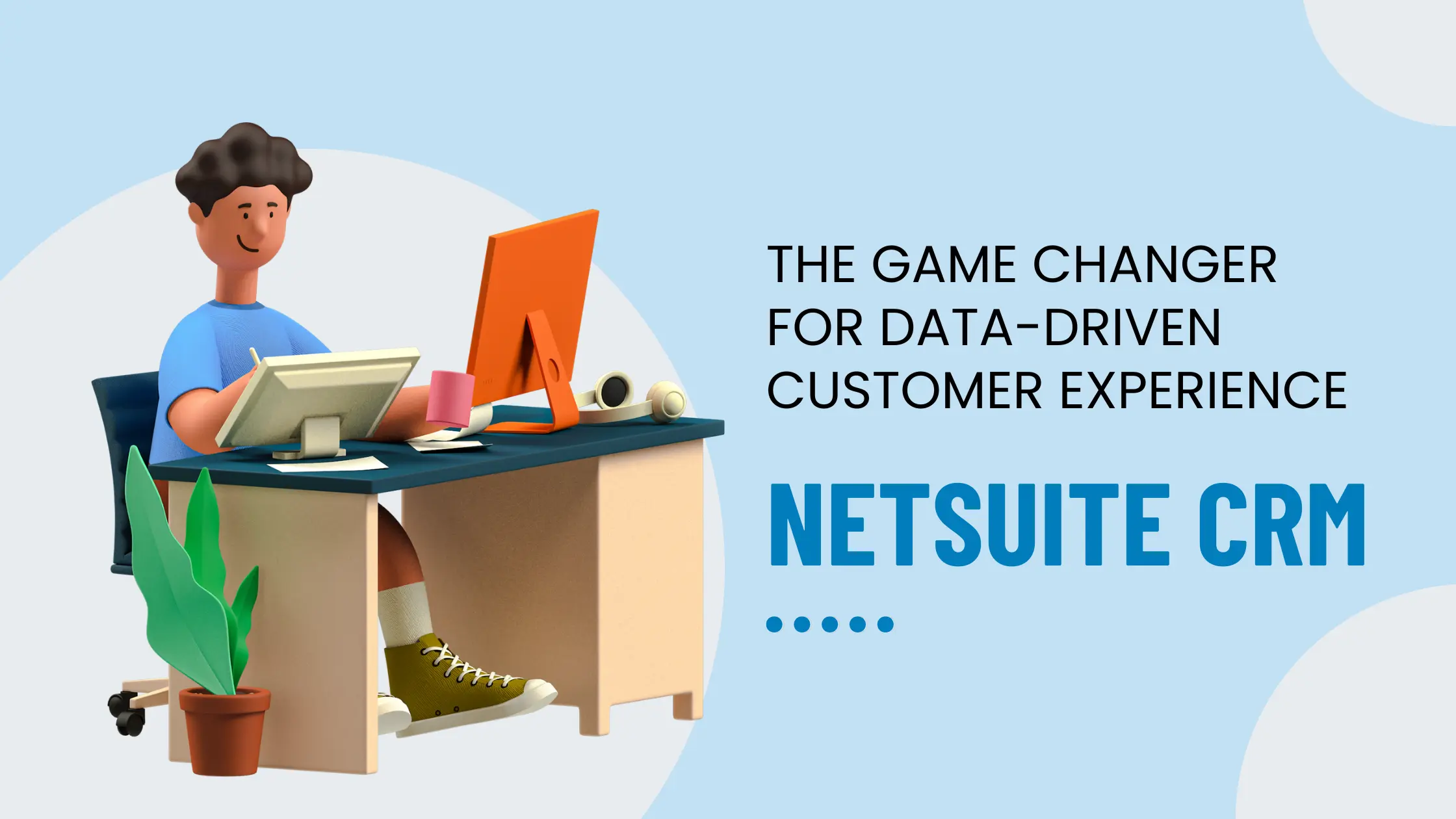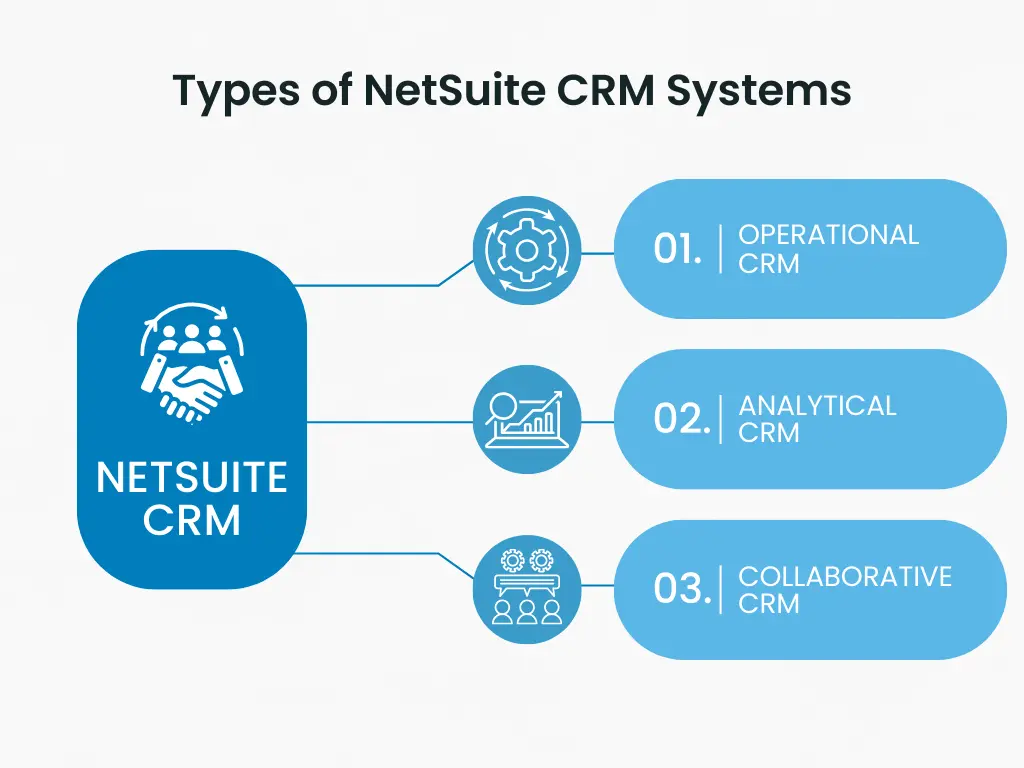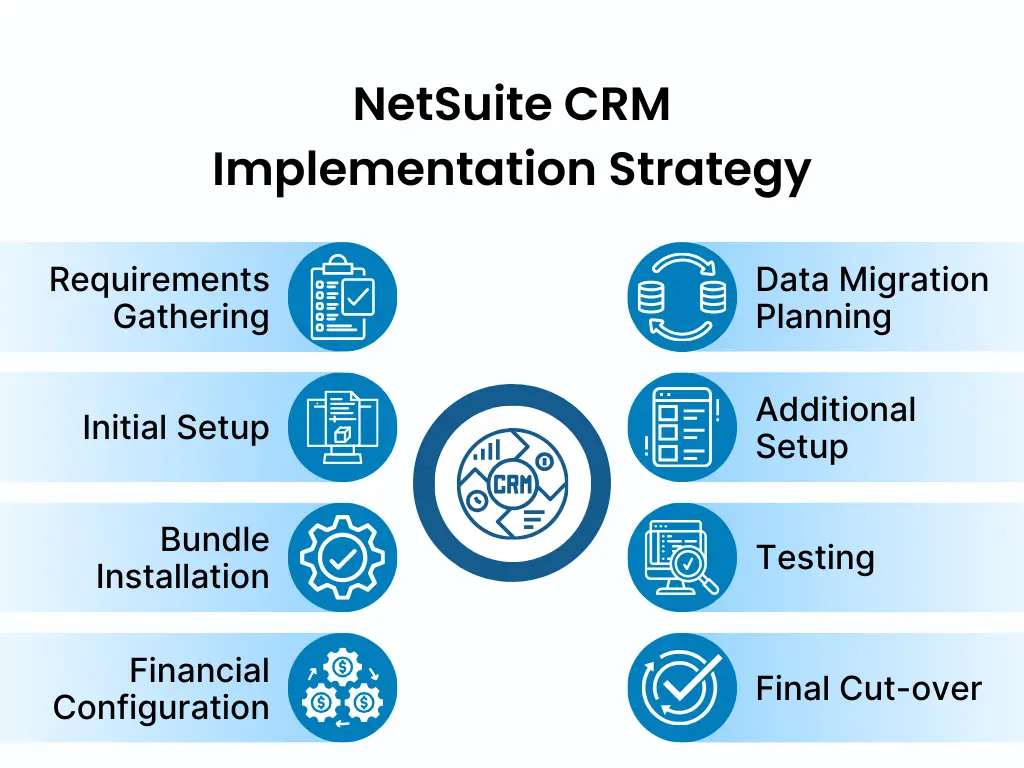
- April 18, 2024
- LiveStrong Technologies
- 0
What Is Customer Relationship Management (CRM)?
NetSuite CRM is a strategy and set of practices, backed with technology, which helps businesses to handle and improve the interactions and relationships they have with their customers, through the entire we can say ‘customer lifetime’ of the customers. CRM can be described by three major components- info acquisition, analysis, and leveraging this data to better grasp customers’ perspectives, interests, behaviours, and expectations.
The foremost objective of CRM is creating lasting mutually beneficial relations with customers by providing best-in-class customer experience and products; this can be achieved by satisfying customers with what they want. CRM system allows corporations to establish a systematic approach to customer interaction thereby increasing customer satisfaction and loyalty, improving their sales, and thus profitability.
What is NetSuite CRM?
NetSuite CRM is a system with inbuilt software that can save the company's full customer and prospect population under one main accessible database. It offers teams the ability to share data across sales, marketing, and support for the best possible interactions with each department. CRM software provides a multi-featured and functional service such as sales automation, customer service management, marketing campaigns, and automation. This feature lets businessmen to easily implement functions like the creation of quotes, sales forecasting, management partner relationships as well as commissions scheduling.
Key Components of NetSuite CRM
• Contact and Lead Management:
Centralized customer information database, conversations and leads source tracking.
• Sales Automation:
Management of chance, forecasting, financial analysis, orders, and sales commission calculations.
• Customer Service:
Case management, knowledge base, service analytics, and customer portals, among others.
• Partner Relationship Management:
Take approaches for managing partner networks, look after channel registrations, and partner payments.
• Activity Management:
Calendar, somethings done, some to be done, all to have the breaks
• Mobile CRM:
Mobile devices will have access to the NetSuite CRM data and features with the same level of accessibility as any other device.
• Dashboards and Analytics:
It showed real-time updates of sales, marketing, service performance, and customer data.
• Integration:
The uni-point influx from the NetSuite ERP, E-commerce, PSA solutions to generate complete sight.

Types of NetSuite CRM Systems
CRM systems can be categorized into three main types, each serving different organizational needs:
1. Operational CRM
Sales, marketing, and client support are the main front-office operations that CRM systems, built for automation purposes, are tailored and crafted to hold and support. They take the hassle out of customer support, performance monitoring and lead management, customer service, and sales.
2. Analytical CRM
Analytical CRM systems primarily focus on the data that they collect, analyze, and interpret. These insights help to make marketing decisions more data-driven. Pattern finding, detecting, and tapping of emerging trends, and hence business intelligence tools, data mining approaches, and advanced analytics are some of the core methods they embrace.
3. Collaborative CRM
Collaborative CRM systems that facilitate interaction and communication among internal departments and teams both inside and outside of the organization are CRM systems that could facilitate interaction and collaboration between different teams and departments and external partners. It furnishes a landscape of customer support, knowledge pools, and information sharing.

NetSuite CRM Implementation Strategy
When implementing NetSuite there are several key steps to follow:
1. Requirements Gathering:
Start by understanding your business needs, goals, processes, and specific functionality requirements. Identify current pain points, core needs across departments, reporting requirements, and systems that need integration.
2. Initial Setup:
Configure the basic accounting framework by defining a chart of accounts and enabling necessary features like accounts receivable/payable, inventory management, and multi-currency support.
3. Bundle Installation:
Enhance NetSuite's capabilities by installing add-on bundles that provide advanced functionalities tailored to your industry or specific needs, such as CRM, e-commerce, project management, or advanced billing.
4. Financial Configuration:
Dive deeper into setting up your chart of accounts, mapping existing accounts, and defining account types (assets, liabilities, revenue, expenses). Decide on the level of detail needed for financial reporting.
5. Data Migration Planning
Plan the migration of critical business data like customer records, product details, vendor information, accounting data, sales orders, invoices, and payment history. Consider data cut-off points and prioritize importing open transactions.
6. Additional Setup
Configure other essential areas like record-to-report (reporting), design-to-build (workflows), call-to-resolution (ticketing), procure-to-pay (purchasing), and order-to-cash (sales cycle).
7. Testing:
Thoroughly test the migrated data and new system configurations through walkthroughs, pilot runs, and rigorous quality checks.
8. Final Cut-over:
Once everything is validated, perform the final data migration and officially switch over to using NetSuite for your daily business operations.
Throughout the process, collaborate closely with your implementation partner, internal teams, and refer to NetSuite documentation for best practices.
Features of NetSuite CRM
• Unified Customer View:
NetSuite CRM offers a universal, well-rounded customer represent-to-customer delta that collects all customer interactions, invoices, and related data into a single record.
• Lead and Opportunity Management:
The software enables its clients to manage the end-to-end sales process and obtain features such as qualified lead capturing, nurturing, leads management, and forecasting through robust solutions.
• Customer Service and Support:
NetSuite CRM canters around a case management system which helps companies to trace and solve consumer complaints correctly to boost satisfaction.
• Marketing Automation:
The platform seamlessly connects to marketing automation tools, permitting the users to generate and run targeted marketing campaigns, track the reactions in real-time, and calculate campaign effectiveness.
• Customizable Dashboards and Reports:
CRM from NetSuite is equipped with personalized dashboards and reports that show the correct information for crucial performance indicators or KPIs, sales figures, and customers, all in real-time.
• Mobile Access:
The app supports sales representatives in the field to access customer data, update records, and manage their activities wherever convenient, making work submission effortless. With NetSuite Mobile Warehouse Management one can manage the WMS from the palm of their hands.
• Integration with NetSuite ERP:
As part of the NetSuite family, the company's CRM with its ERP easily interconnects with each other, providing the sales teams a holistic picture of the customer activity, financial outcomes, and other pertinent information. We can integrate NetSuite with Other systems like Salesforce, Amazon, TribeHr, Shopify, Ytel, Atlas, Magento, GoogleSheets, Outlook, Venus etc.
• Scalability and Customization:
As part of the NetSuite family, the company's CRM with its ERP easily interconnects with each other, providing the sales teams a holistic picture of the customer activity, financial outcomes, and other pertinent information. We can integrate NetSuite with Other systems like Salesforce, Amazon, TribeHr, Shopify, Ytel, Atlas, Magento, GoogleSheets, Outlook, Venus etc.
• Industry-Specific Functionality:
NetSuite's CRM solutions cater to a vast array of industries, including advertising and digital marketing agencies, apparel and accessories, campus stores, consulting, education, energy, financial services, food and beverage, government, health and beauty, healthcare, IT services, manufacturing, media and publishing, nonprofits, professional services, restaurants and hospitality, retail, software and technology companies, transportation and logistics, and wholesale distribution. Offering comprehensive functionality tailored to industry best practices, these solutions help modernize and streamline operations across sectors. With powerful features for managing customer interactions, sales processes, and overall efficiency, NetSuite's CRM empowers businesses to deliver exceptional experiences, drive growth, and maintain a competitive edge.
• Third-Party Integrations:
NetSuite integrates with several external applications and tools for finding value and spinning out a more comprehensive customer management system.
Conclusion
Businesses may harness the potential for creating closer bonds with their customers, promoting sales development, and improving overall operational efficiency by understanding the principles of customer relationship management (CRM) and putting an efficient CRM plan into action. CRM systems will become even more powerful tools for providing outstanding client experiences and promoting long-term success as technology advances.

Frequently Asked Questions (FAQs)
Key benefits include better organization of customer data, improved customer service through quicker access to information, increased sales productivity, targeted marketing efforts, and better customer retention through stronger relationships.
Smaller firms can reap substantial benefits from CRM solutions. Despite having limited resources, these solutions proffer avenues to enhance patron relationship management, streamline processes, and acquire insightful intelligence. Multiple CRM providers furnish economical schemes tailored to suit the requisites of diminutive enterprises. NetSuite BPO Partners benefit from a competitive cost structure akin to that of small business solutions. Moreover, they can typically establish small business client accounts within a matter of hours in most cases.
The magnitude, intricacy, and specific requisites of the enterprise can all influence the duration needed to establish a CRM system. While more intricate undertakings necessitating substantial customization, integration, and data transfer might demand numerous months, simpler setups could be accomplished within a matter of weeks.
The primary function of CRM for business organizations is to help them develop and maintain strong, enduring customer relationships through a shared platform that manages all customer data, communications, and contact points. Thus, it enables companies to serve their customers through personalized experiences for their issue resolution or purchases, while increasing the productivity of their customer service representatives and fostering a better coordination between teams.
